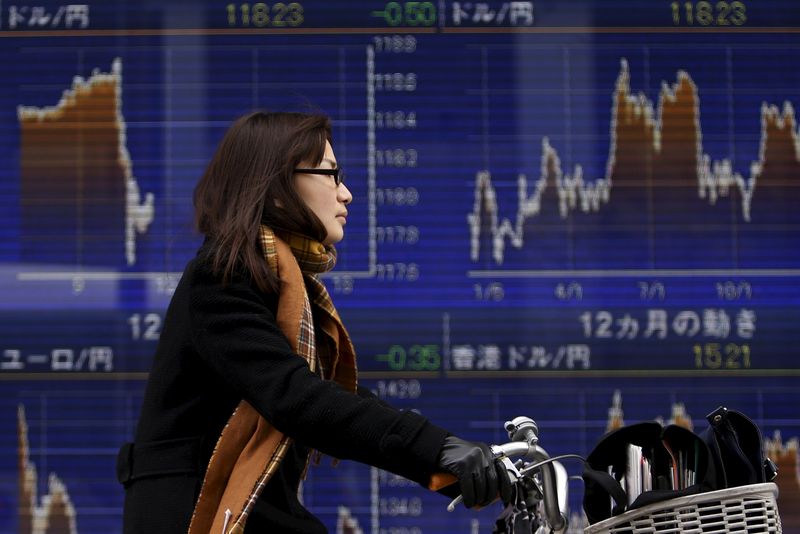This post was originally published on this site
https://i-invdn-com.akamaized.net/news/LYNXNPEC0B0BR_M.jpg
Investing.com – Asia Pacific stocks were mixed on Friday morning as negotiations over the latest U.S. stimulus measures continue in Congress.
Japan’s Nikkei 225 edged down 0.15% by 10:18 PM ET (3:18 AM GMT). The Bank of Japan handed down its policy decision earlier in the day, keeping the interest rate steady at -0.10%.
South Korea’sKOSPI edged up 0.17% while in Australia, the ASX 200 fell 0.83%.
Hong Kong’s Hang Seng Index was down 0.66%
China’s Shanghai Composite inched up 0.05% and the Shenzhen Component edged up 0.12%.
Senate Majority Leader Mitch McConnell said that a bipartisan U.S. stimulus deal “appears to be close at hand” but will likely require work over the weekend to get through Congress. A $1.4 trillion spending bill for the fiscal year beginning on Oct. 1 must also be passed by Friday to avert a government shutdown.
The number of COVID-19 cases and deaths continues to rise through the country, prompting some areas to tighten restrictive measures. Congress is under pressure to pass the spending bill and reach a consensus for the latest stimulus measures amid a faltering economic recovery.
The number of unexpectedly large jobless claims over the past week is another reason for the two sides to reach an agreement. The number of claims filed throughout the week rose to 885,000, more than the 800,000 in forecasts prepared by Investing.com and the 862,000 claims filed during the previous week.
Some investors were optimistic about the long-term economic recovery.
The stimulus package “ought to be a sufficient bridge …that along with at this stage a preparedness for this COVID-19 emergency and the fact that vaccines are ahead by mid-year, would certainly be sufficient to get us through this period of weakness,” Citigroup (NYSE:C) Private Bank global investment strategist Steven Wieting told Bloomberg.
Other investors were more cautious in their optimism.
“We are in an environment now where bad news is good news because it means more stimulus. That will have to change, but it is very difficult to know when central banks will stop having their foot to the floor and everyone has to reassess,” ANZ Research chief economist Sharon Zollner told Reuters.
In Europe, leaders are isolating and scrambling to get tested after coming into contact with French President Emmanuel Macron, who has tested positive for COVID-19.
Pfizer Inc (NYSE:PFE) and BioNTech SE (F:22UAy) are continuing to revise information for their COVID-19 vaccine BNT162b2 after an allergic reaction to the jab was reported in Alaska.
Meanwhile, the Food and Drug Administration is due to meet to discuss emergency use approval for Moderna Inc’s (NASDAQ:MRNA) vaccine mRNA-1273. An advisory panel voted 20-0 with one abstention on Thursday to grant the approval.
Across the Atlantic, hopes for a post-Brexit trade deal between the U.K. and the European Union after trade talks on Thursday dimmed.
European Commission President Ursula von der Leyen said “big differences” remain between the two sides, particularly on fishing, and that “bridging them will be very challenging.”
Prime Minister Boris Johnson spoke with von der Leyen on Thursday evening, after which he said the talks were in a “serious situation” and would fail unless the EU softened its stance on fishing, which he described as “not reasonable.”
A spokesman for Johnson added it was “very likely” there would be no agreement unless the bloc changed its position “substantially”.
U.K. chief Brexit negotiator David Frost on his part warned that progress in the talks has been “blocked and time is running out”.

